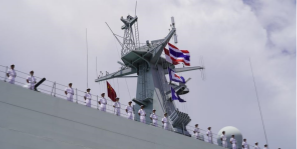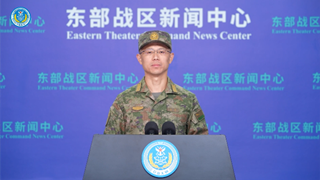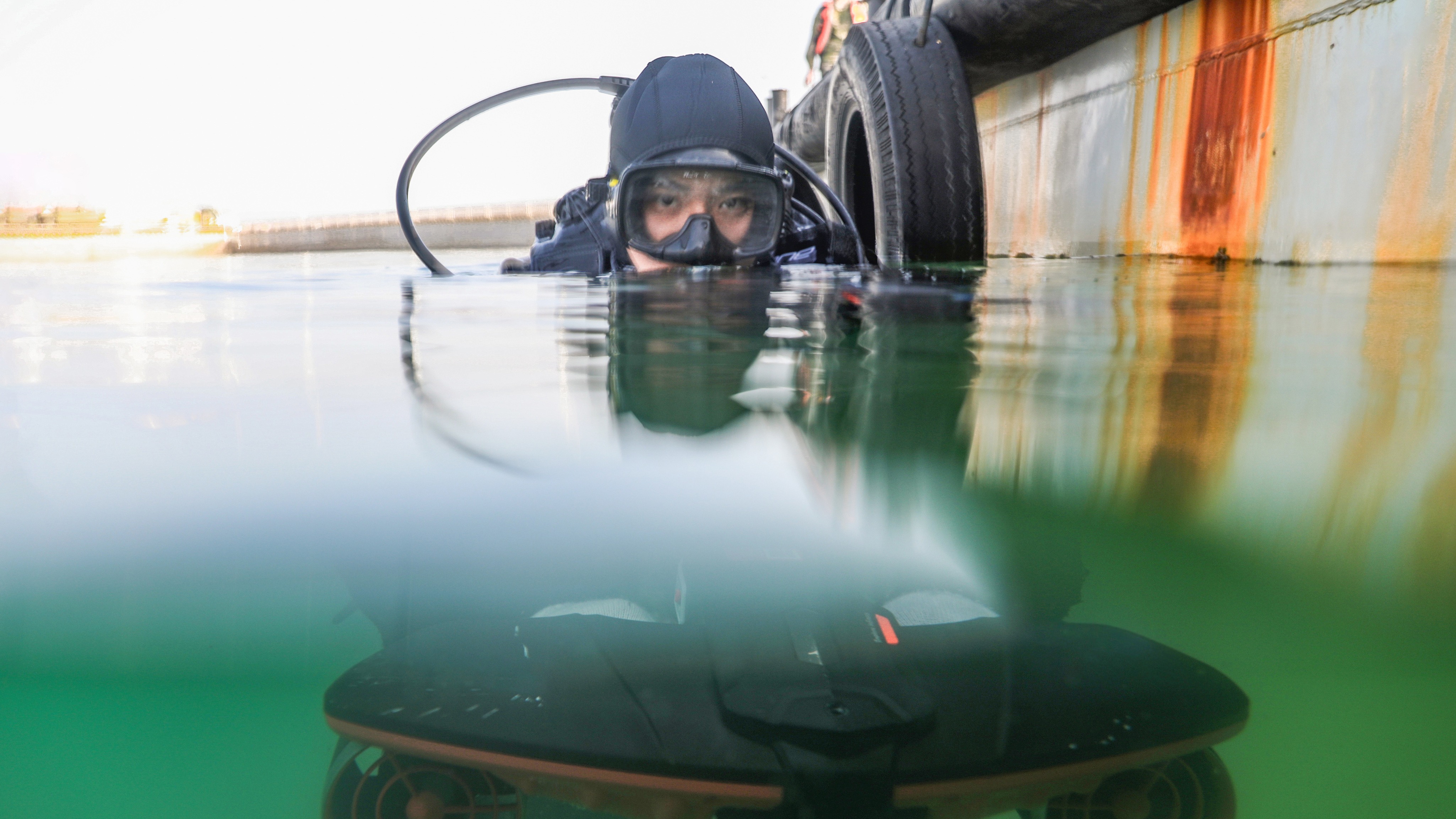By Liu Chang
Recently, frictions over the Australia-UK-US (AUKUS) trilateral security partnership between the US and Australia steadily intensified. The US hard-right Republicans represented by Trump opposed the transfer of nuclear submarines, arguing that their priority should be given to domestic investments rather than those in the allies. The Biden administration began to scheme to compensate for the nuclear submarine cooperation by emerging technology cooperation in a bid to appease Australia and seek a way out for itself. The Australian side is heavily concerned about the lengthy procedures and personnel changes in the US Congress and is dissatisfied with the slow progress of the nuclear submarine cooperation. The entanglement and differences among the US, the UK and Austria have shrouded the prospects of AUKUS with a thick layer of gloom.
Nuclear submarines and emerging technologies are stated to be the two pillars of the AUKUS cooperation. In March 2023, the three parties announced a detailed plan for nuclear submarine cooperation (Pillar 1) at the US Naval Base San Diego. Under the plan, the US will sell three to five US Virginia-class nuclear submarines to Australia in the early 2030s, and outfit the Royal Australian Navy (RAN) with SSN-AUKUS nuclear submarines through co-development with the UK. By establishing the AUKUS, the Biden government has extended its so-called "Indo-Pacific" security cooperation with the UK and Australia to the year 2055, pre-shaping the Asia-Pacific security pattern for the next 30 years essentially.
Despite the ambition of the Biden administration, some US Republicans are strongly opposing the implementation of the AUKUS. In fact, the hard-right Republicans represented by Trump have been the most significant resistance to the transfer of nuclear submarines. If returning to the Trump-style "America first", the AUKUS will probably be the agreement he places at the top of the cancellation list, as was seen from those numerous diplomatic measures of the "Withdrawal Doctrine" he adopted after taking office in 2016. Even without Trump, Republicans are likely to redirect their frustrations from the Democratic administration to Australia.
The progress of the AUKUS is slowed down by the lengthy approval procedures on the transfer of nuclear submarines within the US Congress, which has greatly annoyed the Australian side. This further stimulated opposition to the AUKUS in Australia, especially amid the prolonged sluggishness of the domestic economy; the Australian government's assurance of creating jobs through the AUKUS came to nothing, but incurred increasingly high procurement costs. During the US visit in late October, Australian Prime Minister Anthony Albanese explicitly presented his grievances, pressing Biden and the new speaker of the House, Mike Johnson, to ratify the transfer agreement by the end of 2023. Although some analysts believe that the election of Johnson is expected to finalize the conclusion of nuclear submarine transfer agreement, as the hard-right Republicans have a more vital ability to shape the narrative in the lead-up to the 2024 presidential election, it is highly questionable whether the Biden administration has sufficient leverage to persuade Republicans to support an agenda that is conducive to themselves.
Last week, the Biden administration sent a high-level delegation composed of officials from the US Department of Defense, Department of State, White House National Security Council and Department of Energy to visit Australia, announcing that the AUKUS nuclear submarine transfer project will be reviewed but emphasizing cooperation in artificial intelligence, quantum computing and other emerging technologies. The reason why the US highlighted artificial intelligence cooperation during the visit is that the Biden government, considering the possibility of extended hindrances to the transfer of nuclear submarines, attempts to compensate Austria somewhat by the so-called "Pillar 2" cooperation, to keep Australia bound within the AUKUS framework.
Meanwhile, concerning that Albanese suddenly announced his plan to visit China shortly before his recent visit to the US, which suggested a positive turnaround in China-Australia relations, this move by the US could also be interpreted as a wake-up call or at least a loyalty test to Australia from the Biden administration. The US attempts to continue leveraging the AUKUS to motivate Australia, wooing the country to export strategic resources to the US for long and cooperate with its so-called "Indo-Pacific Strategy" for the purpose of suppressing China.
Under the influence of polarized politics, the current political climate in the US is inadequate to sustain the long-term blueprint of the AUKUS, and Australia, which was cherished with high expectations when joining the AUKUS, has gradually exhausted its enthusiasm amidst the quagmire of intense party rivalry in the US Congress. The current quarrel over the AUKUS between the US and Australia may be just the beginning, and the road ahead of this mechanism is sure to be rocky, impeded by domestic political constraints in the US.
(The author is a scholar at the Department for American Studies of China Institute of International Relations)
Editor's note: Originally published on huanqiu.com, this article is translated from Chinese into English and edited by the China Military Online. The information and opinions in this article do not necessarily reflect the views of eng.chinamil.com.cn.









